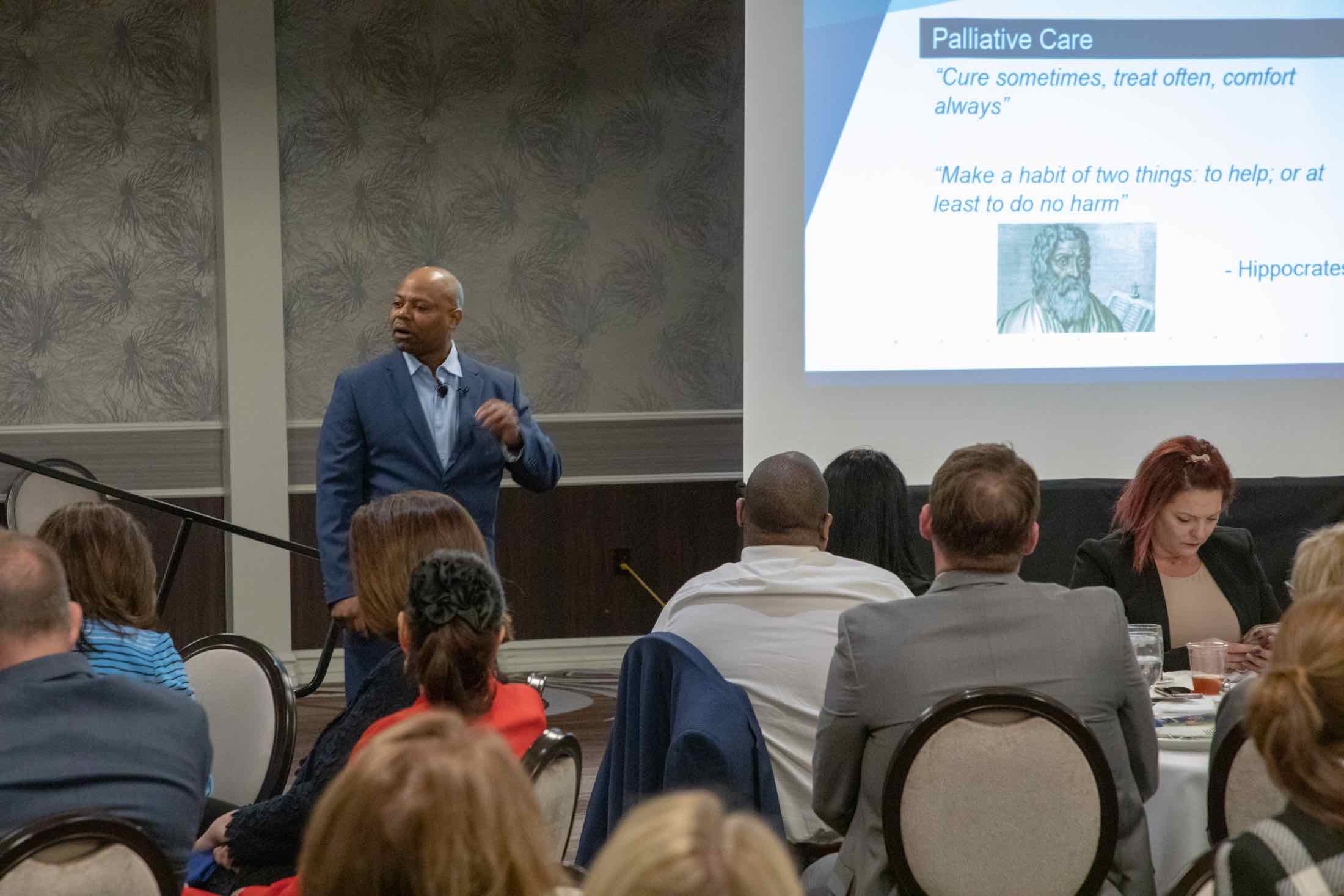Nathan Adelson Hospice hosted “Embracing the Journey,” the 15th Annual Multicultural Conference and Luncheon at Palace Station February 27, 2019.
Throughout the event, insightful presentations and lively discussion emphasized that helping patients and families to make the best choices for end-of-life care begins with an appreciation of how different cultures think, feel and act when it comes to matters related to death and dying.
Panelists’ Insights and Ideas
The event began with a cultural appreciation panel discussion moderated by Carole Fisher, President and CEO of Nathan Adelson Hospice.
Alisa Howard, who teaches the Community Health Worker Training Program at the College of Southern Nevada, shared some of the traditions of the African American community. She pointed that religious sensitivity can be key. It is also important to reassure families that hospice care does not mean they are abandoning their family members but rather getting them the care they deserve.
Bessy Lee Oh, Vice President of National Sales at Global Food and Beverage Association, pointed out some Asian people face language barriers as they attempt to understand hospice care. With so many dialects, the availability of proper translation services can be critical in explaining care to families. Also, in certain cultures, the eldest children are expected to care for ill parents by themselves — which can make them reluctant to take advantage of hospice resources.
Dr. Alvaro Vergara-Mery, Certified Medical Interpreter, showed how easily ideas could be confused during translation. He noted that particularly with Latin American cultures, issues often arise because the word “hospice” has negative connotations when translated into Spanish.
Social worker and UNLV lecturer Cheryl Johnston pointed out that many members of the LGBTQ community mistrust medical professionals due to historical issues their community has experienced. Also, even though they may have been with a significant other for decades, if they are not married, they may encounter issues with legality and paperwork at the end of their partner’s life.
The final panelist, Veteran Affairs Chaplain Howard Nelson, described specific issues that veterans face when considering their end-of-life care, such as survivor’s guilt and feelings they did not do enough to protect friends during wartime. He agreed with the rest of the panelists that the best providers display cultural humility and take the time to learn about the cultures they are serving.
Reducing Misunderstandings Increases the Opportunity to Provide Care
Following the morning panel discussion, Master of Ceremonies Congresswoman Shelley Berkley greeted the guests and brought Vegas Golden Knights singer Carnell “Golden Pipes” Johnson onstage to perform a powerful rendition of the National Anthem and entertain the crowd while they enjoyed a delicious lunch.
The event’s keynote speaker, Dr. Clevis Parker Sr., deepened the audience’s appreciation of the cultural challenges of hospice care. He discussed some of the misconceptions about hospice care, particularly related to its cost. Dr. Parker explained how Medicare and Medicaid typically cover all hospice care costs and that many private insurances include comparable hospice benefits.
Dr. Parker is a strong proponent of being sensitive to each family’s culture and beliefs. He pointed out that when patients and their families feel respected, they are more receptive to care plans and services. Understanding and respecting each culture opens lines of communication and generates trust. And being a trusted partner gives dedicated hospice professionals the opportunity to deliver needed care.
Together the presenters agreed that continuing to overcome cultural barriers will go a long way to ensure the entire community is aware of the invaluable services offered through hospice care.

